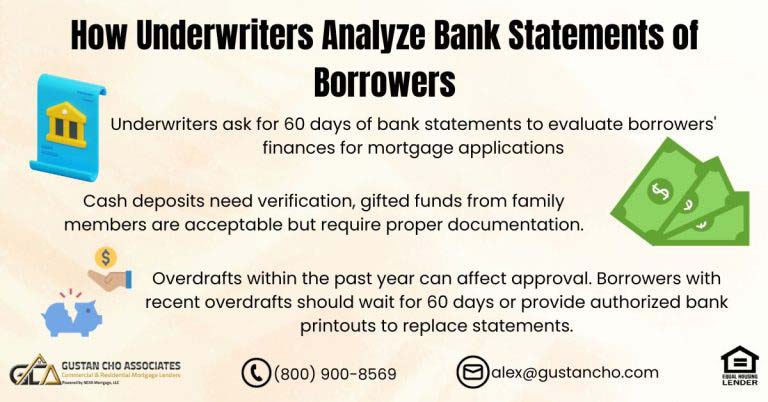This guide covers the importance of job stability when buying a house with a mortgage. Income is the most important factor when qualifying for a mortgage. You can have the highest credit scores in the world but without documented income, you will not qualify for a mortgage.
You can have credit scores down to 500 FICO but have stable documented income and qualify for a mortgage as long as you have been timely on all monthly payments in the past 12 months.
A home purchase is most people’s biggest investment in their lifetime. However, the majority of home buyers do not have $200,000 plus to cough up on a home purchase. Most homebuyers need a mortgage. To qualify for a mortgage, lenders look at stable documented income. The importance of job stability is the most important factor when buying a home and qualifying for a mortgage. In the following paragraphs, we will cover the importance of job stability and qualified income to qualify for a mortgage.
The Importance of Job Stability When Applying For a Mortgage
The Importance of job stability is hands down the most important factor by lenders when underwriting a mortgage borrower. The importance of job stability determines the steady stream of documented income The steady stream of documented income means the borrower has the ability to repay their mortgage. The number one reason for homeowners defaulting and going into foreclosure is due to the disruption of their monthly income. Gaps in employment is understandable and does not deter someone from qualify for a mortgage.
How Mortgage Underwriters Issue Loan Approvals
Job stability is an important factor to consider when buying a house for several reasons. A steady job provides a reliable source of income, which is crucial for making mortgage payments and covering other housing-related expenses. Lenders often assess your ability to repay a mortgage based on your employment history and income stability. Lenders typically look for borrowers with a stable employment history. You will get a mortgage if you have a consistent job with a reliable income. Frequent job changes or a recent period of unemployment can raise concerns for lenders, potentially affecting your loan approval.
The Importance of Job Stability To Determine Financial Stabiltity of Borrower
Job stability contributes to overall financial security. A stable job reduces the risk of financial instability, ensuring you can meet your mortgage obligations and other financial responsibilities without significant stress. Homeownership is a long-term commitment, often spanning decades. Job stability allows you to confidently plan for the long term, knowing that you have a consistent income stream to cover mortgage payments and ongoing homeownership costs.
Benefits of Strong Job Stability
While job stability is essential, it’s not the only factor to consider when buying a house. Other factors, such as your credit score, debt-to-income ratio, and overall financial health, also play crucial roles in homebuying. Assessing your overall financial situation and planning accordingly before committing to a mortgage and homeownership is essential.
Mortgage Guidelines on Employment Gaps
Borrowers can have gaps in employment in the past two years and qualify for a mortgage. However, if you have gaps in employment for six or more months, you need to be in your new job for at least six months to qualify for a mortgage and 30 days of paycheck stubs.Lenders want to make sure that your new employment will be stable.
A stable job can lead to career advancement and increased income. This, in turn, may improve your financial situation and make homeownership more manageable.
There is no seasoning on your new job if you have gaps of employment for less than six months. You do need 30 days of paycheck stubs on your new job before you can get a clear to close. Lenders will ask your employer about the likelihood for your employment to continue for three or more years. This is primarily due to loss of job and/or going out of business by self-employed borrowers.
Importance of Job Stability Due to Ability to Repay
Lenders want to see mortgage borrowers have the ability to repay their new housing payment. This is the number one reason for job stability. The best way to analyze layered risk when underwriting borrowers is to look at the past payment history and income history. This is why lenders want to know the past two years of employment history. Lenders also want to know the probability of the borrowers’ income for the next three years. This is why when they do a verification of employment.
One of the questions asked on the verification of employment is how likely is the probability for the borrower’s income and employment to continue for the next three years. Nobody has a crystal ball and can predict the future. However, the past is a good indication of the future.
Those who have longevity in employment in the same field are considered strong borrowers and viewed favorably by lender. The importance of job stability is not just important for lenders but homebuyers should really analyze just how stable their jobs are. One of the biggest reasons why mortgages default and go into foreclosure is due to loss of employment. If your current employment seems unstable, I really recommend that you hold off on buying a home.
Mortgage Guidelines on Income and Employment

Economic downturns can lead to job losses and financial challenges. A stable job can provide a buffer against such uncertainties, increasing your ability to weather economic downturns and meet your financial obligations.
With self-employed borrowers or 1099 wage earners, two years of seasoning working as self-employed or 1099 wage earners is required. Two years of federal income tax returns are required. If the borrower is both W-2 and self-employed and owns more than 25% of the company, then both the corporate and individual income tax returns are required. Lenders frown upon declining income.
How Do Underwriters Look at Decling and Irregular Income
Declining income may disqualify borrowers from qualifying for a mortgage. Mortgage underwriters have a lot of power and underwriter discretion when it comes to irregular or declining income. It depends on the mortgage underwriter and. The mortgage underwriter can deny borrowers with irregular or declining income based upon underwriter discretion.
Job stability can indirectly contribute to maintaining a good credit score. A stable income lets you pay bills on time and manage your finances responsibly, positively impacting your credit history.
If a borrower goes from 1099 to W2 wage earner, then there is no seasoning period on the new W2 income job. An offer letter of employment is required. The income offer on the employment offer letter will be used by the mortgage underwriter when calculating qualified income. 30 days of paycheck stubs is required prior to a clear to close.
Income Guidelines For Borrowers Going From W2 to 1099 Wage Earner
If a mortgage borrower goes from W2 to 1099 wage earner, there is a two year seasoning requirement as a 1099 wage earner. Lenders want to see income stability wage earner as a 1099 and/or self-employed wage earner. Lenders view newly employed 1099 wage earners as having more risk with regards to income stability versus W2 wage earners. Two years of income tax returns is required.
Mortgage underwriters will average the past 24 months of the 1099 wage earners adjusted gross income based on their income taxes.
That average will be the monthly borrower’s monthly qualified income. Bank statement loans for self-employed borrowers do not require income tax returns. We can just go off bank statement deposits. 12 months bank statement deposits are averaged to derive monthly income. Withdrawals does not matter.
Evaluating Your Job Stability
A lender will verify employment and qualified income. However, borrowers should do their own evaluation as well. As yourself how stable is your job? Is there any chance of your company laying you off? What happens if your company lays you off? Is your industry hiring people with your skills? Today, many fields such as in the technology sector, employees are in demand. Other industries may not be as hot. Government jobs normally have a long hiring process. Police officers and firefighters normally have to wait six months to two or more years to get hired. Police officers always had one of the most stable jobs in the nation.
Due the radical left and the new ideology of Democrats in the nation, many blue states are being forced to defund the police. High crime cities like Los Angeles, Chicago, New York are laying off police officers despite the growing crime rate.
Experienced producing real estate agents and mortgage loan originators with a book of business normally can get a job quickly. Many high producing loan officers do not have to worry about job stability. Many are being constantly recruited by major mortgage bankers and being offered hundreds of thousands of dollars in sign on bonus. Technology is expanding where many jobs are being replaced with automation. Smaller companies are getting acquired by larger companies and corporations. All of the above factors should be considered before pulling the trigger on a long term commitment like a home purchase.
How Stable is Your Job in Your Profession
Borrowers should also evaluate their job stability. How stable is your job? Consider the worst case scenario and run over a what if case scenario. What if I lose my current job. How easily can I get a new job? How stable or strong is the particular industry you are in. You should not get paranoid but do consider the worst case scenario. You will want to have at least six months in reserves for a rainy day. One of the things you need to consider is how much house can I afford. You do not want to much house that will affect your lifestyle. Lenders will go with how much home can you qualify and not how much home you can afford.
Getting Started With The Pre-Approval Mortgage Process
If you have any questions on the content of this article on the importance of job stability or need to qualify for a mortgage with a lender with no overlays on government and conventional loans, please contact us at Gustan Cho Associates at 800-900-8569 or text us for a faster response. Or email us at gcho@gustancho.com. Over 80% of our borrowers are folks who could not qualify for a mortgage at other lenders due to their lender overlays.
Gustan Cho Associates has a national reputation of being able to approve mortgage loans other lenders cannot. Many refer the team at Gustan Cho Associates as a one-stop mortgage broker shop. This is because we have a lending network with over 220 non-QM and alternative wholesale lending partners. Any mortgage loan program for owner-occupant homes, second homes, investment properties that is on the market, we have it. The team at Gustan Cho Associates is available 7 days a week, evenings, weekends, and holidays.
FAQs: Importance of Job Stability When Buying a House
-
1. Why is job stability so important when getting a mortgage? Job stability is very important because it demonstrates that you have a continuous source of income, which can be used to pay the mortgage. Even though you may possess good credit scores, without a dependable revenue stream, it will still be impossible to qualify for a loan.
-
2. Can I qualify for a mortgage with a lower credit score if I have a stable job? Sure! Lenders can take into account persons with scores as low as 500 provided that there is an established employment history and timely payments within the past one year.
-
3. How does job stability affect my ability to buy a home? This means that once you have remained in your current occupation for an extended period of time, your chances of repaying your mortgage on time are much better. It’s not just about getting approved; it’s about being able to sustain homeownership over the years.
-
4. What if I’ve had gaps in my employment history? Lenders know gaps occur; hence, if you have been in such a position for at least six months and also have some recent paycheck stubs, then there is still room for qualifying for this facility.
-
5. Besides job stability, what else do lenders consider? Additional items like debt-to-income ratio, credit score or financial health are all factors considered by lenders. They determine whether you can safely shoulder the burden of having home loans.
-
6. How can I assess my job stability before applying for a mortgage? It makes sense to consider how stable your industry is as well as its potential layoffs and future job prospects. It’s advisable to always have other options and savings in case of sudden shifts in career line.
-
7. What if I’m self-employed or have irregular income? A Self-employed individuals usually need two years’ worth of tax returns to demonstrate their income consistency. There are also bank statement loans which are deposited rather than tax returns.
-
8. How do I get started with the mortgage pre-approval process? If you want to qualify for a mortgage without any unnecessary restrictions from lenders, then contact us at Gustan Cho Associates. We’re available seven days per week to assist you.
For more information about the importance of job stability on your mortgage approval, feel free to reach out to us. We’re here to help you navigate the homebuying process with confidence!
This blog about the Importance of Job Stability When Buying a House was updated on January 5th, 2024.









